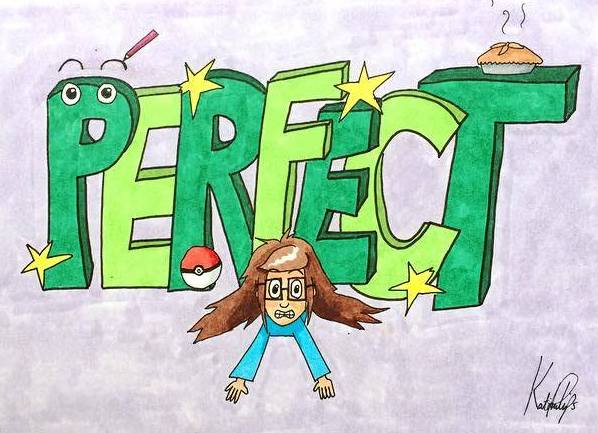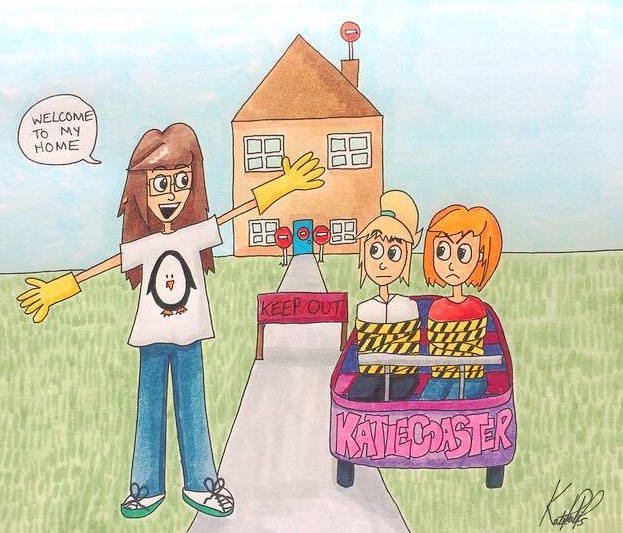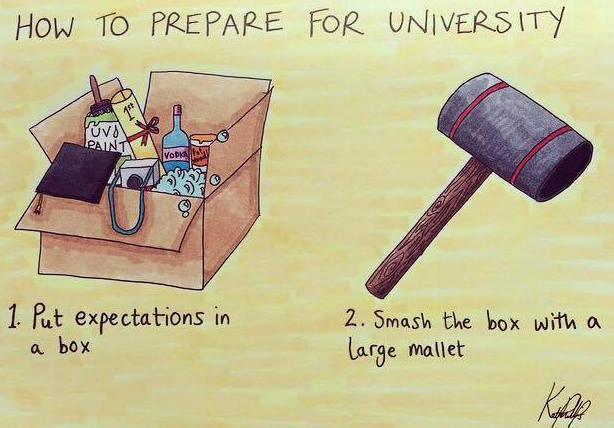I have an amazing family and, since being in hospital, my mum has visited me nearly every day. During visits there are a variety of activities we try to do to distract me from my current situation, sometimes we watch TV programs mum has downloaded to her tablet, we have been known to dabble in a little scrabble and once a week my mum will help me edit these blog posts that you love so much, to let me know if there are any glaring grammatical errors (that’s right. If you ever see a grammatical error on this blog feel free to blame my mother…only kidding…thanks for the help mum). When it comes to conversation however, there is little to no variety in topic and usually, if not every visit, we will end up talking about something mental health related which understandably can get rather tiresome.
It is therefore no wonder that the other afternoon my mum asked if we could possibly “talk about anything else” and lord knows I can see where she is coming from. Anyone would get fed up talking about depressing brain nonsense all the time and I do not blame her at all for asking for a different topic once in a while but at the same time I don’t think people realise how difficult it is to talk about things other than mental health problems when you have mental health problems, even if you are trying really really hard.
I hate admitting that because it makes me sound incredibly boring and self obsessed to say that I am frequently caught up in conversations regarding my head demons but the thing is, when your head demons are in your head 24/7, it is practically impossible to think about the “anything else” that other people wish to be discussing. Which part of your brain is supposed to be free to think about this supposed “anything else”?
When you are lost in your mental health problems, asking such a question is pretty much the same as asking someone who is being repeatedly smacked on the head with a wooden pumpkin to say anything other than “Oww”, “please stop hitting me with that”, “that hurts” or, if the person is a particularly articulate fellow “My frontal lobes are in a state of great pain so please desist with your actions and then tell me where on earth you were able to find a root vegetable carved out of the finest mahogany”.
I think this is especially the case when someone is in hospital because not only are your mental health problems all you can think about but they are all around you and you are in a location in which forgetting them is impossible, like trying to forget the smell of fresh bread in a bakery. I know people are always telling me that I am “more than” my mental illness and that it isn’t my entire identity which should mean I do have other things to talk about, but I think when in hospital you are often treated as an illness rather than an individual, and psychiatric units, though helpful, can make you start to feel like you are not a person at all.
It is like the problem I am currently facing being on 1:1 Observations.
Now, considering I write a blog on the internet all about how I am a flipping lunatic (or “Marbleless Marvel of mysterious Marblelessness when being addressed formally), you could say that I am perhaps not the world’s most private person. I talk about my mental health problems publicly every week and whenever I go into hospital for treatment I no longer ask friends to make up excuses to explain my disappearance in day to day life (my favourite of which was when I was 16 and to cover up my detainment in a psychiatric unit a rumour was spread at school that I was working on voicing a rat in the Disney Pixar sequel to “Ratatouille”, a rumour that was regrettably untrue in that I have never voiced a rat for Disney, nor has a sequel to Ratatouille ever materialised). However, as open and honest as I am, like any regular person, I still do like a reasonable amount of privacy in my life and unfortunately, for the past few months, privacy is something that I have been severely lacking due to the nightmare that is 1:1 and 2:1 observations.
The terms 1:1/2:1 observations in hospital are probably self explanatory and in explaining it I apologise for offending your intelligence, but basically it means that wherever you go, there will be at least one member of staff staring at you (aka 1 or two staff to your 1 patient ratio). It doesn’t matter whether you are going to the toilet, having a shower or having a snooze, the staff member will be with you (possibly within arm’s reach if that is stated in your care plan), and they will be watching every move, almost like a real life version of that song “Every breath you take” by The Police with those creepy lyrics (seriously if you haven’t heard that song look it up. It is weird and is a perfect summary of the 1:1 inpatient experience.) That song and indeed that experience has been my life for the past two months and to be blunt, it is incredibly humiliating. More than humiliating though, it is dehumanising and that is one of the things that takes me back to the question as to how you can talk about anything else other than mental health problems when you are being treated as a new species of disorder that is able to walk and talk. You are not a person, you are a thing that needs to be watched and observed. I am constantly hearing staff in the corridor ask each other “who is watching Katie?” or “who is with Katie for the next hour?” as if I am a ticking time bomb that people are just waiting to go off.
I suppose in fairness everyone loses a certain level of privacy when they are admitted anywhere. Even if you aren’t on 1:1 obs in hospital, you will be on some kind of observations, just as I was initially on 10 minute observations meaning that every ten minutes a staff member would appear at my door to see what I was up to. Therefore staff knew what I was doing all of the time but still in that ten minutes of unobserved time there was an element of privacy that I am sorely missing today, and I think that having just that ten minutes again would make me feel more human and less like a living issue in need of being managed. In those ten minutes I could hum a jolly ditty if I wanted and nobody would know, but now I can’t even convert oxygen to carbon dioxide without a beady eye watching to make sure I do it appropriately.
It is just so humiliating to be watched all of the time, even in the “private moments” that people take for themselves just to respect their own decency. Take urinating for example. Sure I have learnt over time to manage it and can now pee with staff even if I don’t have music playing on my phone (although in the early days such an activity was practically impossible and it is safe to say that I have publicly urinated to every song in the current top 40 charts…have fun getting that image out of your head when you next listen to Ed Sheeran on the radio), but it is still something that I want to do on my own. Worst of all though is showers and I think that is where my main issue lies with this whole 1:1 thing.
Imagine absolutely hating your body, despising every ounce and seeing it as nothing but a source of shame and then having to parade it around naked in front of a different stranger every day whilst you wash yourself. Surely that would be a challenge for even the most body confident person out there but for the person whose body is a constant source of torment and torture? How can anyone feel human or respected then? How can you feel anything other than dehumanised, humiliated and not respected as a proper person with their right to their own privacy whilst they have a good lather? How can you see yourself as, let alone discuss, “anything else” other than mental health problems?
I suppose I know on paper that if I were to print this blog post out and give it to any of the members of staff looking after me right now they would say that they do 1:1 Observations to look after people and keep them safe rather than humiliate but it is a lot harder to believe that when you are the one standing naked in front of a complete stranger whilst you frantically look for a pair of pants (hypothetically of course…this has never actually happened to me… Trust me, when you are on 1:1 you always have your clean pants prepared for after a shower!)
So, when you have mental health problems how easy is it to talk about “anything else”? Well, not very, when you don’t have the brain space or power to think about these “anything else’s”. Sometimes though, the biggest challenge isn’t thinking about anything else, but, when you are on 1:1 observations and have no say in your treatment, it is about trying to see yourself as anything other than a dehumanised circus freak in a constant humiliating parade.
Take care everyone x






